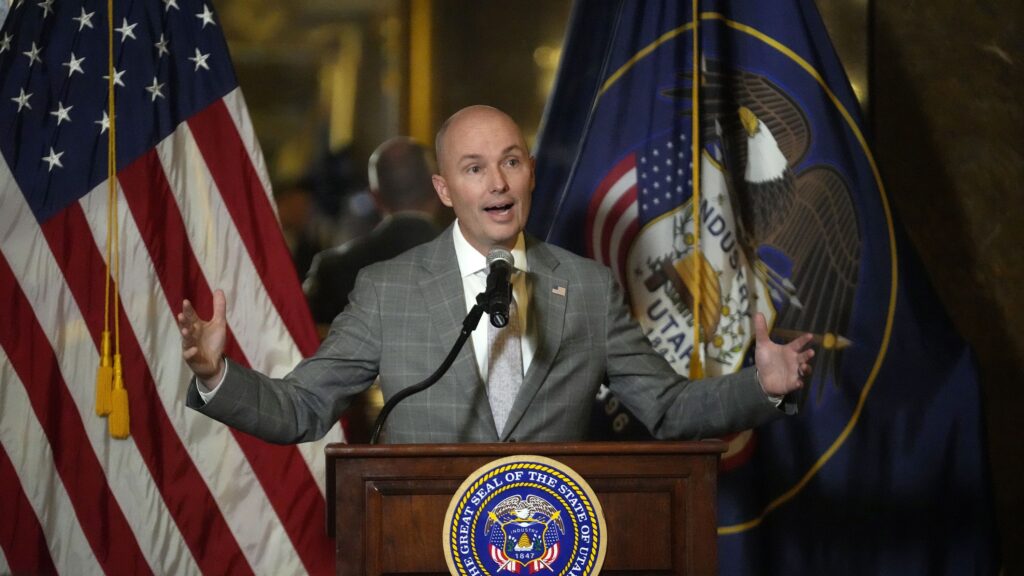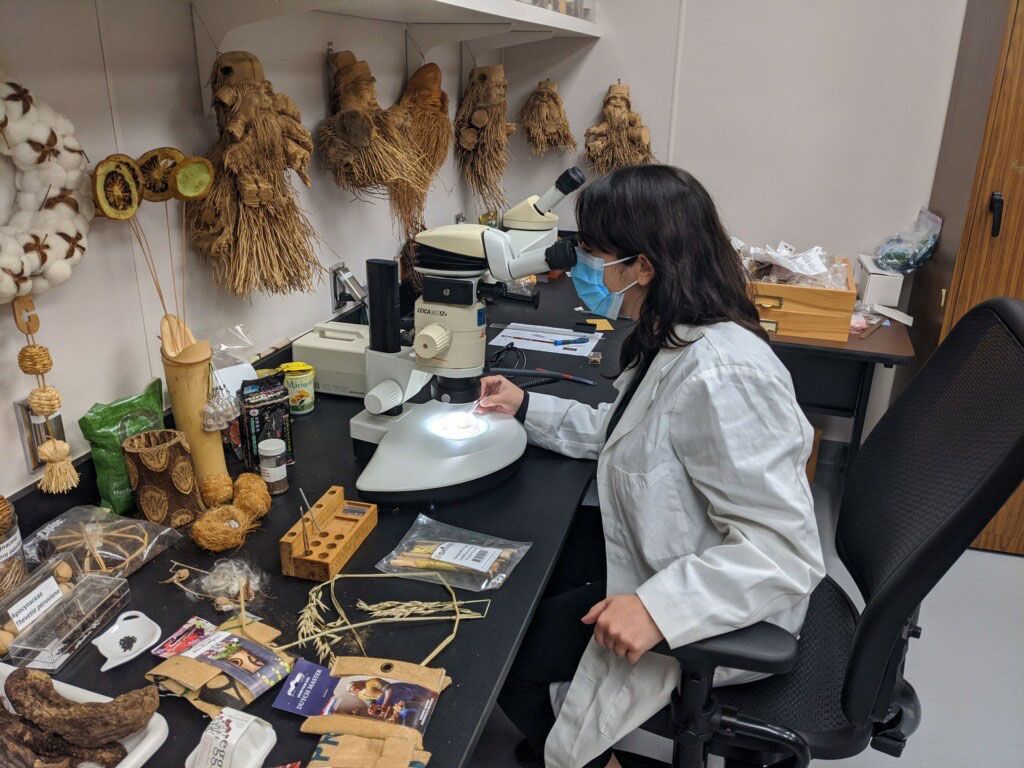OUT WEST ROUNDUP | Groups ask court to restore protection for gray wolves; ‘Innocent Man’ defendant still imprisoned

THE WEST
Groups ask court to restore protections for gray wolves
BILLINGS – Wildlife advocates on Jan. 14 asked a federal court to overturn a U.S. government decision that stripped Endangered Species Act protections for wolves across most of the nation.
Two coalitions of advocacy groups filed lawsuits in U.S. District Court in Northern California seeking to restore safeguards for a predator that is revered by wildlife watchers but feared by many livestock producers.
The Trump administration announced just days ahead of the Nov. 3 election that wolves were considered recovered. They had been wiped out across most of the U.S. by the 1930s under government-sponsored poisoning and trapping campaigns.
A remnant population in the western Great Lakes region has since expanded to some 4,400 wolves in Michigan, Minnesota and Wisconsin.
More than 2,000 occupy six states in the Northern Rockies and Pacific Northwest after wolves from Canada were reintroduced in Idaho and Yellowstone National Park starting in 1995.
The lawsuits could complicate an effort to reintroduce wolves in sparsely populated western Colorado under a November initiative approved by voters, a state official told wildlife commissioners the same day. If endangered species protections were restored, wolves would again fall under authority of the federal government, not the state.
In response to the lawsuits, U.S. Fish and Wildlife Service spokeswoman Vanessa Kauffman said in a statement that the gray wolf “has exceeded all conservation goals for recovery” and is no longer threatened or endangered under federal law.
Plaintiffs in the lawsuits include the Sierra Club, WildEarth Guardians, Humane Society of the U.S. and numerous other environmental and advocacy groups.
A small population of Mexican gray wolves in the Southwest remain protected as an endangered species. Wolves in Alaska were never under federal protection.
OKLAHOMA
Court rules ‘Innocent Man’ defendant to remain imprisoned
OKLAHOMA CITY – A man who has spent 35 years in prison in a murder case featured in the book and television series “The Innocent Man” must remain incarcerated even after a judge ordered his release, an appeals court ruled Jan. 7.
The Court of Criminal Appeals ordered Tommy Ward, 60, to remain imprisoned while the state appeals the lower court’s ruling that he be released.
Ward and a co-defendant, Karl Fontenot, were convicted and sentenced to life in prison in the 1984 kidnapping and killing of Donna Denice Haraway, a convenience store clerk in Ada, Oklahoma.
But a Pontotoc County district judge ruled in December that prosecutors withheld key evidence in the case, including witness interviews and police reports, and ordered Ward’s release.
Fontenot, Ward’s co-defendant, was ordered released by a federal judge in 2019, and the state is also appealing that order.
The convictions of Ward and Fontenot have come under intense scrutiny for years and have been the subject of numerous books, including John Grisham’s “The Innocent Man,” which he produced into a six-part documentary.
The convictions were based almost entirely on accounts they said they retrieved from dreams. These “dream confessions” came after hours of interrogation by Ada police and state agents desperate to solve the disappearance of Haraway in the small central Oklahoma town.
After the details of both men’s confessions were proven untrue – Haraway’s body was discovered years later in a different location and had been shot to death not stabbed as the pair had said – a state appeals court ordered new trials. Local prosecutors again secured their convictions, based largely on their confessions.
NEW MEXICO
Democrats supports tapping state fund for education
SANTA FE – With the Legislature shifting to the left and the pandemic exacerbating educational inequities, New Mexico Democrats say they’re on the cusp of finishing a decades-long fight to withdraw more money from the state’s largest and oldest endowment to fund early learning initiatives.
Unlike allocating state revenues through a simple spending bill, legislators would have to pass a resolution that would set the stage for voters to consider amending the constitution to loosen restrictions on a permanent fund used to finance various state projects and programs.
Democrats want to take 1% more from the Land Grant Permanent Fund each year and expand the beneficiaries to include prekindergarten. It currently only funds K-12 programs.
Democrats said Jan. 11 that public opinion polling commissioned by supporters of the measure shows increased favorability among voters, with 63% of Republicans and 79% of Democrats indicating support. The poll of 500 likely voters was conducted last week by Latino Decisions and had a 4% margin of error.
The Land Grant Permanent Fund has grown to around $20 billion in part because it pays out much less than it collects from land uses like oil and natural gas drilling and mineral mining. It’s also fueled by returns on stock market investments.
With an annual growth rate above 10% and a payout of less than 5%, the payouts to fund current programs could be increased by much more without endangering future payouts, Albuquerque Democrat Rep. Antonio “Moe” Maestas argues.
The Land Grant Permanent Fund is an artifact of New Mexico’s colonial history created by the transfer of federal land to state control ahead of the territory’s transition to statehood in 1912.
City’s campaign aims to attract remote workers
ALBUQUERQUE – New Mexico’s largest city is launching a new marketing campaign to attract remote workers who can do their jobs from anywhere.
Albuquerque’s effort also is aimed at getting former residents – also known as “boomerangers” – to move back as a way to boost the local economy.
City officials announced Jan. 13 that they’re partnering with a local firm to highlight Albuquerque as an ideal place for people seeking a more healthy lifestyle with room to grow. They’re hoping to capitalize on trends that have been accelerated by the pandemic – namely people wanting to move away from large cities.
Mayor Tim Keller touted the city as less crowded, less stressful and more affordable.
The ABQ Home for Life campaign will include digital advertising and social media focused on a handful of key cities such as Houston, Portland and Los Angeles. More cities will be added.
WYOMING
Man pleads guilty in Yellowstone dig seeking treasure
CHEYENNE – A Utah man has pleaded guilty after authorities said he was caught digging in a Yellowstone National Park cemetery in search of hidden treasure.
Rodrick Dow Craythorn, 52, of Syracuse, Utah, entered the plea Jan. 4 in U.S. District Court in Casper to illegally excavating or trafficking in archaeological resources and to damaging federal property.
He could face up to 12 years in prison and $270,000 in fines when sentenced March 17.
Craythorn was searching for a treasure chest containing coins, gold and other valuables left in the backcountry a decade ago by Santa Fe, New Mexico, art and antiquities dealer Forrest Fenn, who published a book with a poem containing clues to where the treasure could be found.
Craythorn caused more than $1,000 in damage by digging in the Fort Yellowstone Cemetery between Oct. 1, 2019, and May 24, 2020, prosecutors alleged.
Fenn died at age 90 in September, three months after announcing the treasure had been found. A grandson of Fenn confirmed in December the finder was Jonathan “Jack” Stuef, 32, a medical student from Michigan.
Fenn said before his death the treasure was in Wyoming but neither Stuef nor Fenn’s relatives have said where specifically.
Several people seeking the treasure, estimated to be worth at least $1 million, had to be rescued from precarious situations and as many as six died.













